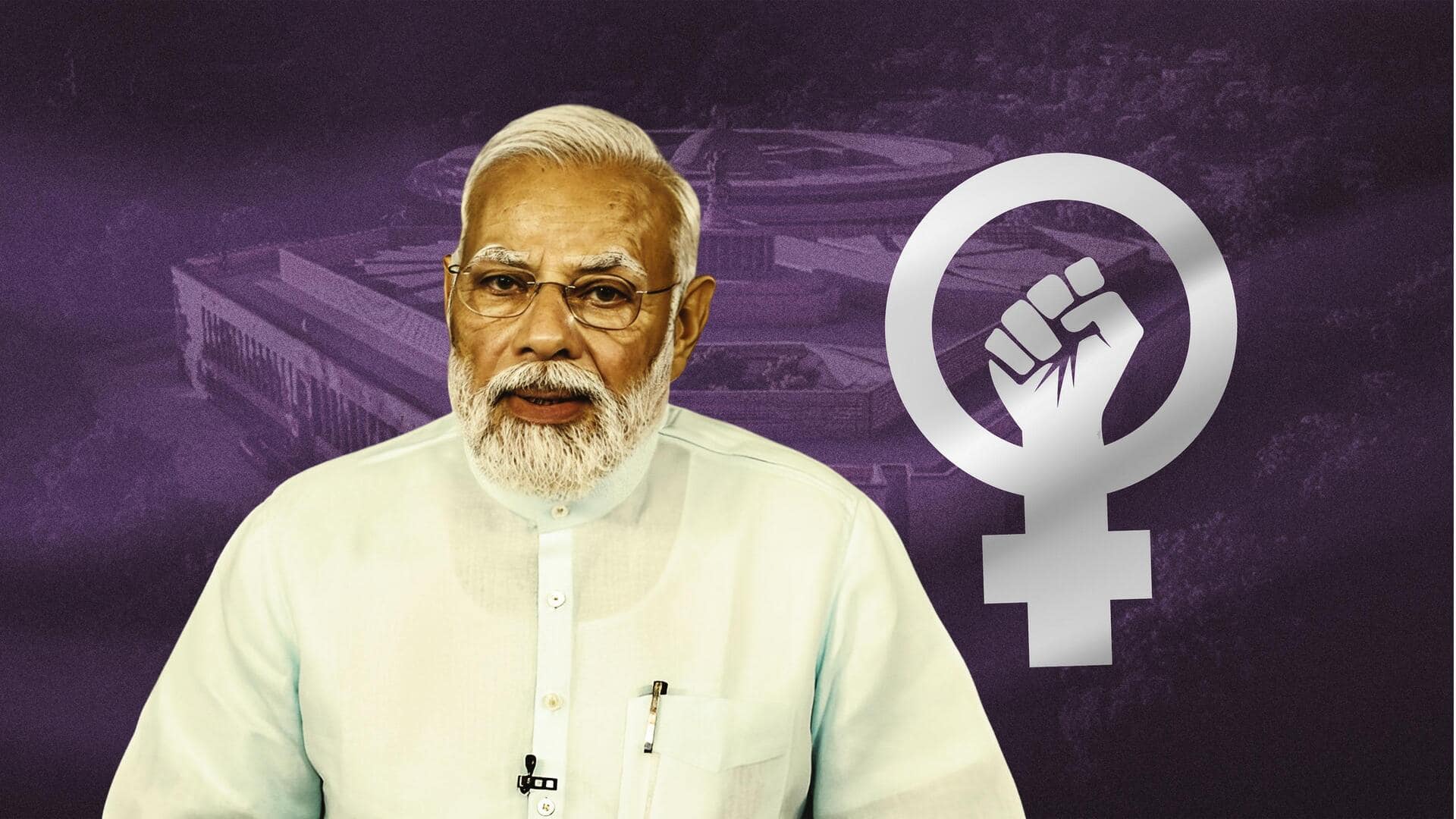
Women's Reservation Bill passed in Lok Sabha
What's the story
The Women's Reservation Bill, called the "Nari Shakti Vandan Adhiniyam," was passed in the Lok Sabha on Wednesday, with 454 votes in favor and two against it. The number of women members in the Lok Sabha will now increase from 82 to 181. The bill seeks to reserve 33% of seats in the Lok Sabha, state legislatures, and the Delhi legislative assembly for women.
Context
Why does this story matter?
This is one of the few instances of bipartisanship in Parliament. The Bill was passed in the Rajya Sabha in 2010, during the Manmohan Singh government; however, it lapsed with the dissolution of the 11th Lok Sabha. On Tuesday, the Congress called the Bill "election jumla" since the reservation will become effective only after a census and delimitation exercise—probably in 2029.
Delimitation
Seat reservation to come into effect after delimitation
The quota, however, would not apply to the Rajya Sabha or state legislative councils. It also excludes reservations for women in the Other Backward Class (OBC) category. One-third of the quota shall be allocated to women belonging to the Scheduled Castes and Scheduled Tribes. Furthermore, seat reservations will take effect after delimitation is completed and the relevant figures for the first census are published.
Twitter Post
454 MPs vote in favor, 2 MPs vote against it
Lok Sabha passes Women's Reservation Bill granting 33% seats to women in Lok Sabha and state legislative assemblies
— ANI (@ANI) September 20, 2023
454 MPs vote in favour of the bill, 2 MPs vote against it pic.twitter.com/NTJz449MRX
Information
6 unsuccessful attempts to pass Bill
Before becoming law, the Bill must now be passed by the Upper House of Parliament and at least half of India's state legislatures. Since its introduction in 1996, there have been six unsuccessful attempts to pass the Bill.
Shah
Bill required two-third majority to pass
Notably, a two-third majority was required to pass the Bill. The government introduced the Bill, formally called the Women's Reservation Bill 2023 [The Constitution (One Hundred Twenty-Eighth Amendment) Bill, 2023], on Tuesday. Earlier, Home Minister and Bharatiya Janata Party (BJP) leader Amit Shah stated that the Bill will give reservations to women across the current three categories—general, SCs, and STs—under which MPs are elected.
Debate
Sonia Gandhi sought reservation for OBCs
The debate over the Women's Reservation Bill began in the Lower House on Wednesday, with parties throwing shades at each other. Leading the argument from her party, Congress Parliamentary Party Chairperson Sonia Gandhi sought a reservation for OBCs and immediate implementation of the bill. In response to Sonia's demands, BJP MP Nishikant Dubey claimed that the Congress had never addressed the issue before.
Rahul
Bill lacks quota for OBCs, claims Rahul Gandhi
Congress leader Rahul Gandhi also shared the Congress Parliamentary Party chairperson's concerns over the lack of quota for OBCs. "There is one thing, in my view, that makes this bill incomplete. I would like to have seen OBC reservation included in this bill," he said. Meanwhile, Shah stated that reservation is not a "political issue for the BJP and Prime Minister Narendra Modi."